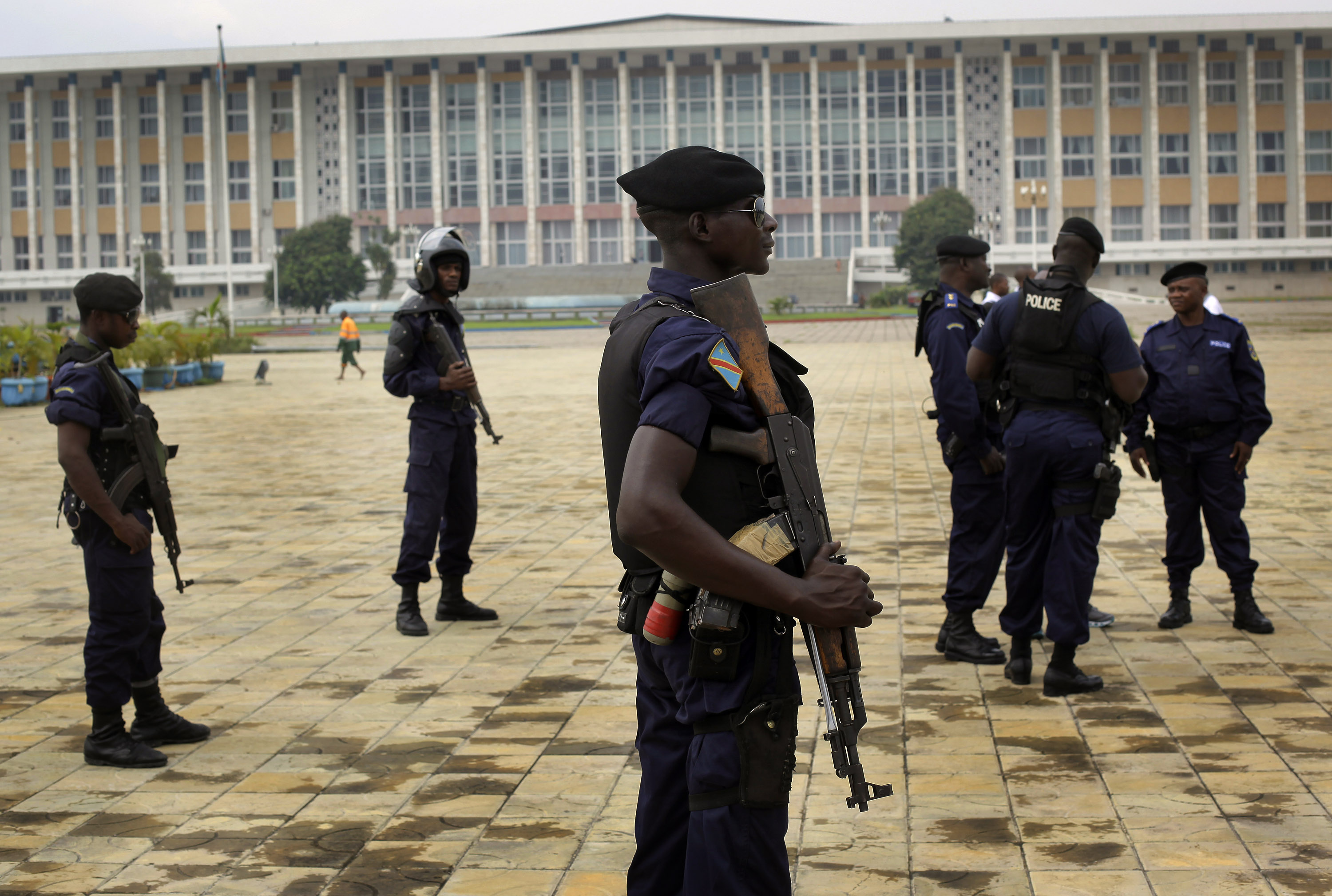
Tensions in Congo’s capital are rising as the Congolese government took swift action this week to suppress opposition voices.
The government banned a peaceful march organized by Catholic religious leaders yesterday to commemorate the 20th anniversary of what is known as the “Christians Massacre” and to protest the recent botched presidential and legislation elections. The anniversary marks the day in 1992 when several Christians were killed during a pro-democracy rally against the closure of a national conference to debate the Mobutu Sese Seko regime. Yesterday, soldiers met peaceful demonstrators with tear-gas and arrests. Congo’s Voice of the Voiceless rights group reports that three priests and two nuns have been imprisoned, and soldiers and police fired tear gas into church compounds to prevent people from participating.
To further silence any dissent earlier this week, the Congolese government turned off signals of three broadcasting stations, including one belonging to the Roman Catholic Church. Patrick Nsiala, the program officer of the Catholic TV station RTCE, commented, “We do not know why exactly our signal has been stopped.”
The Carter Center has issued a statement condemning these acts and urging the Congolese government to respect the rights of its citizens:
Peaceful political expression is a fundamental human right that is protected by the DRC's constitution and international treaties of which the government of the DRC is a signatory.
The arrest of priests, nuns, and a human rights activist in Kinshasa, along with the closure of three radio stations, are dangerous developments, and The Carter Center urges the government to reverse these actions immediately. Radio stations should be reopened and the government should release from custody immediately those who have been arrested for their peaceful political activities.
Clearly, the Congolese government feels threatened by recent anti-Kabila sentiment questioning the legitimacy of the sitting president. Prominent members of the Catholic Church, which had the largest network of independent observers during the November presidential election, have voiced opposition to the handling of the elections since the results were announced, claiming the results did not represent the voices of the people. In January, 35 Congolese bishops released a statement condemning the Congolese presidential election, calling on the election commission to correct “serious errors.” Furthermore, the archbishop of Kinshasa had called for a campaign of disobedience and for the election results to be annulled.
The government’s actions in Kinshasa this week demonstrating the ruling power's repression of Congolese citizens raised red flags among international and Congolese human rights activists about how ongoing election-related tensions might escalate. Enough Project Congo Policy Analyst Aaron Hall said:
These repressive actions by the Congolese government against a non-violent, faith based movement are deplorable. Congolese civil society has been deeply engaged in the electoral process and continues to be shut out by the Kabila regime. Democratic representation and freedom of assembly are enshrined in the Congolese constitution, and there must be accountability for those leaders that continue to diminish credibility, justice, and democracy at the peril of the citizens of Congo.
Photo: Congolese riot police stands in front of the parliament building in Kinshasa, Democratic Republic of Congo, Monday Dec. 5, 2011. A sense of dread permeated the capital, as citizens awaited the proclamation of results Tuesday Dec 6 2011. (AP Photo/Jerome Delay)

